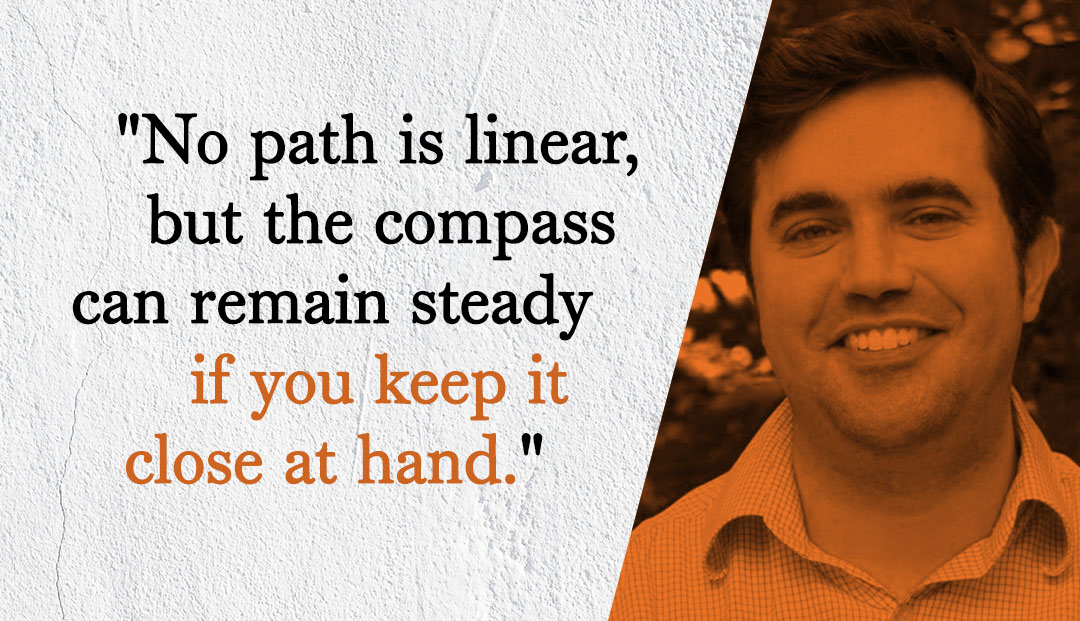Fernando Ribeiro Delgado ’04 is the coordinator of the Strategic Litigation Working Group at the International Network for Economic, Social and Cultural Rights (ESCR-Net).
Specializing in the documentation of prison and police abuse, Fernando has helped spur numerous local and national human rights reforms and advocated against mass incarceration in his native Brazil.
In this Q&A, he discusses his work to advocate for and advance human rights, and how a focus on policy at the Princeton School of Public and International Affairs (SPIA) strengthened his analysis and engagement with policy work.

Q. What is/are the most important policy issue(s) facing us today?
Delgado: Inequality is a core feature of many of the most profound challenges faced by communities around the world. The data on inequality within countries as well as between them is staggering, and the experiences of the large proportion of people left at the margins of economic, social, and political structures in different societies show in vivid detail the nature and consequences of this unjust reality. It is hard to think of a major policy issue — whether rising authoritarianism, systemic racism, or climate change — that is not fueled in some significant measure by profound inequalities. Promoting greater equality, including substantive, not just procedural, equality, should be a crosscutting policy imperative. Not only would this enhance fairness, it would go a long way toward mitigating a host of problems.
Q. What are you most passionate about? What current project or initiative are you most excited about?
Delgado: I currently have the amazing opportunity of working with human rights defenders from around the world on emerging legal issues relating to economic, social, cultural, and environmental rights. We might be filing an amicus brief in a U.S. Supreme Court case in one jurisdiction in one instance, and submitting a third-party intervention to an international court or United Nations treaty body in the next. It has involved collaborations to advance jurisprudence on issues like the rights to water, housing, food, health care, and a healthy environment. There is a unique strength in working in coalition across contexts and experiences, with each participant bringing invaluable perspectives, weight, and expertise.
Q. Over the course of your career, what are the most important skills/strategies you’ve learned?
Delgado: The most deeply helpful advice I received was from my mentors, who taught me that, in advocating for human rights, we should always analyze injustice from the perspectives of those at the very bottom of the given power structures. This advice, in turn, was sourced from Gandhi’s writings. In my work to advance the rights of persons deprived of liberty, trying to lean into this meant prioritizing interviews with those most marginalized within the prison walls: the people held in punishment cells, in isolation, or in mental health lockdowns, for example. Not only did that work reveal profound violations in need of redress, it offered a lens to better understand the criminal justice system.
Q. When it comes to decision-making, what are the most effective strategies? How do you make critical decisions and forge a consensus?
Delgado: Always striving toward collaboration and critical consultation. My best work has always been done in strong partnership with others and guided by critical feedback. I think these are necessary conditions.
Q. In what ways did the Princeton School of Public and International Affairs prepare you for your career?
Delgado: The School offered me an unparalleled introduction to the world of policymaking, its features, opportunities, and pitfalls. How does governing happen? Who gets to be at the table? Why? Is that fair? What do they take into account? What are the possibilities for social change, and how might it be achieved? The School’s policy focus, coupled with the practical education offered by the task forces, provided me with insights on these fundamental questions from the start of my career. That strengthened my analysis and engagement with policy work in a way I think would have taken longer to develop had I chosen another path.
Q. How do you think the School trains students to be policy leaders? What were the tactical skills you gained while at the School that you still employ today?
Delgado: The School’s mission is premised on service to the nation and humanity. By placing that anchor, it calls on all who go through it to work toward that mandate. Those words helped push me toward a career in human rights. The concept of honorable service is one I have found to be very motivating in the face of the adversity that social justice advocacy inevitably throws at me from time to time.
Q. How can young people entering the workforce be successful?
Delgado: (Re)connect with the dreams of why you wanted to do meaningful work from your time in college, graduate school, or even before. Hold on to those. Let them guide you. Know that no path is linear, but the compass can remain steady if you keep it close at hand.
#Changemakers: Alumni Making a Difference is a Q&A series featuring alumni of the Princeton School of Public and International Affairs.

